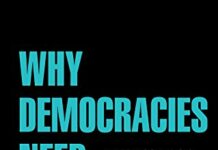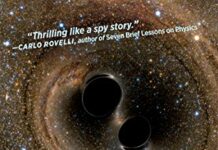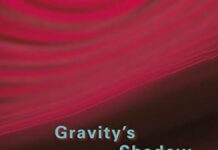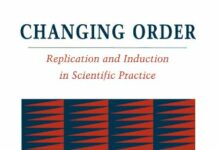
Ebook Info
- Published: 2008
- Number of pages: 174 pages
- Format: PDF
- File Size: 1.11 MB
- Authors: Harry Collins
Description
What does it mean to be an expert? In Rethinking Expertise, Harry Collins and Robert Evans offer a radical new perspective on the role of expertise in the practice of science and the public evaluation of technology.Collins and Evans present a Periodic Table of Expertises based on the idea of tacit knowledge—knowledge that we have but cannot explain. They then look at how some expertises are used to judge others, how laypeople judge between experts, and how credentials are used to evaluate them. Throughout, Collins and Evans ask an important question: how can the public make use of science and technology before there is consensus in the scientific community? This book has wide implications for public policy and for those who seek to understand science and benefit from it.“Starts to lay the groundwork for solving a critical problem—how to restore the force of technical scientific information in public controversies, without importing disguised political agendas.”—Nature“A rich and detailed ‘periodic table’ of expertise . . . full of case studies, anecdotes and intriguing experiments.”—Times Higher Education Supplement (UK)
User’s Reviews
Reviews from Amazon users which were colected at the time this book was published on the website:
⭐This is an interesting and, I believe, important book. It attempts to define expertise, and account for its development and its influence in modern society. At a time where there is such rapid social, scientific and technological change, the general public is heavily dependent upon the information that can be gleaned from scientists and authorities about the utility, risks and safety of technological developments. How can the public establish the validity of the judgments that are made by scientific authorities? Further, at this time of economic dislocation, the veracity of the expertise of economists must be seriously challenged by the victims of the changes.Collins and Evans define expertise as the acquisition of “tacit knowledge”, deep understanding that arises from immersion in the practices of social groups. We are all immersed in social groups of various kinds and have amassed tacit knowledge in many domains; the examples of learning to speak a native language or to drive a motor vehicle competently are two examples. To go to the acquisition of tacit knowledge in broader, more esoteric areas, with the acquisition of scientific tacit knowledge we have the example of individuals immersing themselves in the practices of laboratories for long periods of time to be able to assimilate the very subtle practices that differentiate the expert from the learner.The important point made by Collins and Evans is to distinguish between what they term “Contributory Expertise” from “Interactional Expertise”. The former is what we normally think of the expert; the person who can make contributions to the advancement of a discipline and who, potentially, possesses the knowledge to pass on to later generations through teaching and example. The latter is a form of expertise which also comes from deep immersion with a discipline but does not come with the ready ability to make a contribution to the discipline or field. This is the role taken by someone like a lawyer who is able to probe the testimony of an expert witness in court and, perhaps, expose flaws in the argument or in the manner in which evidence has been gained. It is also the role of the sociologist of science, like Collins, who has, for example, analyzed the development of understanding in gravitational wave physics
⭐or Malcolm Gladwell who has a deeper understanding of much of the discipline of social psychology than many social psychologists
⭐.The important question is, can we tell the difference between the “contributory” expert and the “interactional”? Collins and Evans conduct experiments in which such experts respond to questions about the area of study and their answers are judged by an expert who tries to identify which is which. Interestingly, expert judges often cannot tell the difference on the basis of verbal responses. Of course, when it comes to making a contribution to the understanding of gravity waves, Collins, the interactional expert, cannot take the next step, whereas the real expert possibly could. But the member of the public may not be able to tell them apart. And when the two appear in public to make statements about safety or risk, or make predictions of change, whom do we believe? Also, many “experts” in their fields contribute precious few real contributions to their discipline, largely regurgitating information provided by other “real” experts. And, after all, if the lawyer can expose the faulty thinking and the erroneous evidence of the “expert” witness on the stand, who is the “real” expert? This book alerts us to major and subtle problems in our understanding of the nature of understanding of complex issues in the modern world.There is much to be drawn from this relatively slim volume. This review has only begun to present the tip of the arguments and the importance of the outcomes of the analysis. It is well worth reading and thinking about. Such careful analysis should change your views of “experts” for ever. It also raises significant questions about the nature of the training of experts, how we understand that training and how we assess successful outcomes. Those who train professionals in business and the social sciences can certainly learn a great deal from a reading of this book. The book is not complete. Collins and Evans, I think, do not draw out sufficiently the consequences of the problems of uncertainty of judgment about the nature of expertise. They refer at one point to the errors made by economists in making predictions about movements of the stock market, arguing, however, that such failures to predict do not undermine the essential nature of their expertise. In the light of the fundamental flaws investment decisions made by economist experts in the last year one has to question whether these “experts” were much more than verbally fluent “interactional experts” with little fundamental understanding of the dynamics of their discipline. A reading of some recent critics can only reinforce this suspicion.
⭐There is one final thought on this. Isaac Asimov,
⭐over half a century ago, wrote a short story, “The Distant Past” (1956), in which the major contributions to the advancement of science were made by the journalists who were the only people who could bring all the disparate fields together, essentially interactional experts. Asimov was far ahead of his time, as was also H.G. Wells,
⭐cited in this book for his thoughts of the seeing man in the “country of the blind”. A reading of a wider literature in order to understand the subtle nature of “expertise” would not go awry. We have a long way to go to understand expertise and its acquisition. This book is a great help.
⭐This is a fascinating exploration of expertise. The leading idea is: How can I identify an expert ?This question pops up every day: is this climate change scientist an expert ? Should I trust this nutritionist ?The gravity of such decisions becomes evident when parliamentary committees invite experts to testify or when citizen groupslaunch action against new technologies.Additionally, Collins and Evans set to define a new class of expertise: interactional expertise.Somebody can be an expert in the sense that she speaks the language of experts, without being able to contributeoriginal knowledge in her field of interactional expertise. Collins himself is an interactional expert ingravitational wave physics, even though he is a sociologist.The book describes experiments (real, gedanken and Turing-test) about faking expertise, these alone warrant reading the book.Collins (with Trevor Pinch) has previously published Dr. Golem: How to think anout medicine, which explores medical expertise.It includes a nice chapter of fake doctors, which is only shortly discussed here. Unlike Dr. Golem, this book is not a popular science book. Rather heavy sometimes.
⭐This book proposes a new framework for thinking about and evaluating expertise. The authors think an important and neglected area of inquiry regarding expertise is the boundaries surrounding expertise and how we should understand them. With additional nuances within each category it is proposed to understand expertise by the following: Beer-mat knowledge, popular understanding, primary source knowledge, interactional expertise, and contributory expertise.A considerable amount of text space is spent describing interactional expertise (the ability to understand much of the nuance within a particular field, interact with the field’s expert, but not being able to add to the body of knowledge or advance the field) and its relationship with contributory expertise (which encompasses interactional expertise while having the capacity to advance the area in question).Two important distinctions presented by the authers are: accreditation is not the only way, nor necessarily always accurate, in determining expertise status (certain forms of experience may over time qualify someone to have interactional and possibly contributory expertise), and that many technical questions have certain appropriate points for nontechnical insertion of people’s concerns.
⭐The categorization of expertise as laid out in chapters 2 and 3 are intriguing and go a long way into discerning the pit-falls of the false hubris that the information age brings to the masses. I can appreciate the focus to formulate and rationalize the real contributions of interactional experts (those that do not practice a field but possess deep knowledge about it).The ideas presented lays a good ground work on how we can discern the quality of the contributions of individuals have to a conversation, especially in the age of split-second google-Wikipedia searches giving anyone what seemingly may be a large depth of knowledge in subjects they have no understanding of.
Keywords
Free Download Rethinking Expertise in PDF format
Rethinking Expertise PDF Free Download
Download Rethinking Expertise 2008 PDF Free
Rethinking Expertise 2008 PDF Free Download
Download Rethinking Expertise PDF
Free Download Ebook Rethinking Expertise





